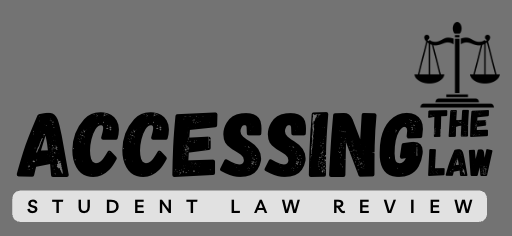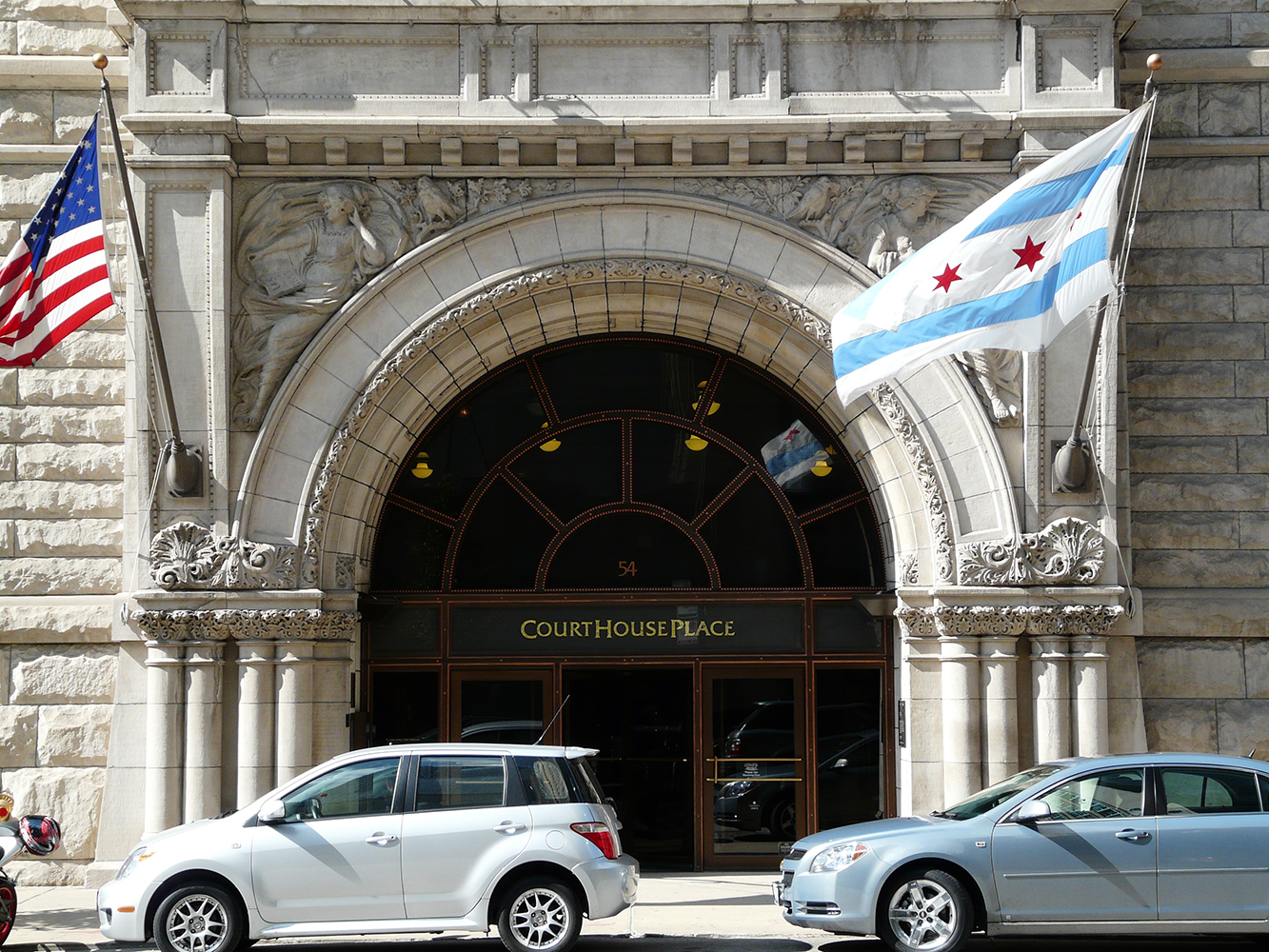Criminal Justice: The Pretrial Fairness Act
Written by Alivia Keys, Dashell Rodriguez, Karen Lopez, and Haley King
Edited by Diana Ascencio, Anna Ramesh, and Liv Moreno
What is the Pretrial Fairness Act?
In January 2021, the Illinois General Assembly passed House Bill 3653. This crime bill is known as the Safety, Accountability, Fairness, and Equity Act. A segment of this act is referred to as the Pretrial Fairness Act. The Pretrial Fairness Act abolishes the cash bail system. It also prohibits pretrial detention for most defendants and creates a new pretrial hearing process. Pretrial release refers to a defendant being released from custody before their trial. Cash bail is the system where a defendant pays a set amount of money to be released from jail before their trial, and if they appear in court for their hearing, they will receive their money back. It is designed to ensure that the defendant appears in court for their trial, however, the cash bail system is known to disproportionately harm people of color.
This statute was created as a plan to reform the criminal justice system in Illinois. The cash bail system often negatively impacts people of color and those residing in low-income communities due to the biased undertones of this method. Additionally, this act helps prevent unnecessary pretrial incarceration, which negatively impacts a person's employment, education, healthcare, and family. Overall, the Pretrial Fairness Act protects the rights of those accused of a crime and ensures access to a just pretrial process. This act went into effect on September 18th, 2023. The implementation has been gradual as jurisdictions adjust to the new system. Early results are promising with a noticeable decrease in jail bookings. However, since this policy is still new, ongoing analysis is necessary to determine its long-term impact.
History of the PFA
Essentially, the Pretrial Fairness Act (PFA) allowed for court proceedings to become more transparent and allowed for the courts to uphold the presumption that all people are innocent until proven guilty; this took away the aspect of detentions before the offender even receives a court date, something commonly known as "bond hearings". Bond hearings are court proceedings in which the judge takes into consideration all aspects of the defendant's behavior and uses that information to make a decision of whether or not they should hold the defendant. The effect of the bond hearing has the power to affect the defendant's preparedness for their actual trial which could cause complications in their case and how they are being represented. Prior to the PFA, there were four counties in Illinois that used bond court hearings. These counties – Cook, Winnebago, Lake, and McLean – were observed over the course of a year prior to the PFA being implemented, and after the implementation of PFA. These observations uncovered a difference in length of court hearings. The implementation of PFA lengthened the court hearings from what was originally 4 to 6 minutes, to anywhere between 4 to 7 minutes. If the state wanted detention to be the outcome of the trial, cases could last from 10 to 30 minutes, and in even more complicated cases, an hour. Prior to PFA implementation, 49% to 88% of bond decisions were announced with no particular reason behind why they were set at a certain rate. These types of bond decisions with no clear reasons stated, decreased significantly after PFA took effect. Not only do the judges state the reasons for their decisions more often after PFA, but these decisions now take into account information from both prosecution and defense. Overall, the PFA allows for a more uniform practice, therefore effectively removing disparities in the methods of "bond court hearings" that were adopted by these four counties.
Importance of the PFA
The Act has not had its full effect yet, and there isn't a definitive projected success rate yet, but there has been some change. There has been a decrease in pretrial jail populations, and public safety has been maintained by focusing on risk assessments. The Loyola University Chicago study has focused on this, reporting the average daily jail population dropping in the first few months of this act, and the pretrial population went from 10,000 to 3,000.
Lavette Mayes is a prime example of the people this act was trying to assist. She was locked up in Chicago for fourteen months after a physical altercation and was charged with aggravated battery against a senior before the act because she could not afford her $25,000 bond. Failing to pay the original bail left Mayes to lose her school-van transport business and no longer have full custody of her children. Nearly a year later, a judge lowered Mayes's bail to $9,500 as a down payment. With the help of Mayes's family applying for additional support from the Chicago Community Bond Fund, they were able to successfully bail Lavette Mayes with an ankle monitor. As great as it sounds for Mayes to finally be free, in her own words, "[she's] still fighting today to get back what [she] had before [she] went to jail".
The Pretrial Fairness Act was created to prioritize public safety by reducing the number of people incarcerated, ultimately fostering a more equitable justice system in Illinois. This is done by taking away cash bail and relying on individualized assessments to determine release conditions for a more just judicial system. The impact is not yet defined as it is still being studied. However, preliminary analysis of the issues with this system strongly indicates that eliminating cash bail will decrease the number of people in jail just because they cannot afford to be bailed out while reducing the pressure of accepting plea deals, which may lead to a fairer outcome.
History of the PFA
Essentially, the Pretrial Fairness Act (PFA) allowed for court proceedings to become more transparent and allowed for the courts to uphold the presumption that all people are innocent until proven guilty; this took away the aspect of detentions before the offender even receives a court date, something commonly known as "bond hearings". Bond hearings are court proceedings in which the judge takes into consideration all aspects of the defendant's behavior and uses that information to make a decision of whether or not they should hold the defendant. The effect of the bond hearing has the power to affect the defendant's preparedness for their actual trial which could cause complications in their case and how they are being represented. Prior to the PFA, there were four counties in Illinois that used bond court hearings. These counties – Cook, Winnebago, Lake, and McLean – were observed over the course of a year prior to the PFA being implemented, and after the implementation of PFA. These observations uncovered a difference in length of court hearings. The implementation of PFA lengthened the court hearings from what was originally 4 to 6 minutes, to anywhere between 4 to 7 minutes. If the state wanted detention to be the outcome of the trial, cases could last from 10 to 30 minutes, and in even more complicated cases, court hearings could last up to an hour. Prior to PFA implementation, 49% to 88% of bond decisions were announced with no particular reason behind why they were set at a certain rate. These types of bond decisions with no clear reasons stated, decreased significantly after PFA took effect. Not only do the judges state the reasons for their decisions more often after PFA, but these decisions now take into account information from both prosecution and defense. Overall, the PFA allows for a more uniform practice, therefore effectively removing disparities in the methods of "bond court hearings" that were adopted by these four counties.
Importance of the Act
The Act has not had its full effect yet, and there isn't a definitive projected success rate yet, but there has been some change. There has been a decrease in pretrial jail populations, and public safety has been maintained by focusing on risk assessments. The Loyola University Chicago study has focused on this, reporting the average daily jail population dropping in the first few months of this act, and the pretrial population went from 10,000 to 3,000.
The Pretrial Fairness Act was created to prioritize public safety by reducing the number of people incarcerated pretrial, ultimately fostering a more equitable justice system in Illinois. This is done by taking away cash bail and relying on individualized assessments to determine release conditions for a more just judicial system. The impact is not yet determined as it is still being studied. However, preliminary analysis of the issues with this system strongly indicates that eliminating cash bail will decrease the amount of people who are in jail just because they cannot afford to be bailed out while reducing the pressure of accepting plea deals decreases, which may lead to a fairer outcome.
Works Cited
"Bond Court Cook County: An Overview of Judicial Procedures." 2024. Hirsch Law Group. February 6.
https://www.hirschlawgroup.com/bondcourt cookcounty/#:~:text=Free%20Initial%20Meeting,every%2
0step%20of%20the%20way.
"Ending Cash Bail Keeps Families Together, Communities Safe and Strong." 2024. Shriver Center on Poverty
Law. June 4. https://www.povertylaw.org/article/ending-cash-bail-keeps-families-together/.
"Lavette's Choice | News & Commentary." 2018. American Civil Liberties Union. February 1, 2018.
https://www.aclu.org/news/smart-justice/lavettes-choice.
Loyola Chicago Center for Criminal Justice. 2022. "Estimating the Impact of the Pretrial Fairness Act: Bond
Court Hearings in Cook, Lake, Winnebago, and McLean Counties." Loyola University of Chicago Center for Criminal Justice. Loyola Chicago Center for Criminal Justice. July 19. https://loyolaccj.org/pfa/blog/bond-court-observations.
Miller, Meghan. 2024. "The Pretrial Fairness Act: Why It Is Needed and How It Will Improve Pretrial Safety
and Justice in Illinois." Center for American Progress. May 9, 2024. https://www.americanprogress.org/article/the-pretrial-fairness-act-why-it-is-needed-and-how-it-will-improve-pretrial-safety-and-justice-in-illinois/.
Preston, Allie. "The Pretrial Fairness Act: Why It Is Needed and How It Will Improve Pretrial Safety and
Justice in Illinois." Center for American Progress, September 18, 2024. https://www.americanprogress.org/article/the-pretrial-fairness-act-why-it-is-needed-and-how-it-will-improve-pretrial-safety-and-justice-in-illinois/.
"The Pretrial Fairness Act." n.d. The Pretrial Fairness Act. https://pretrialfairness.org/.

